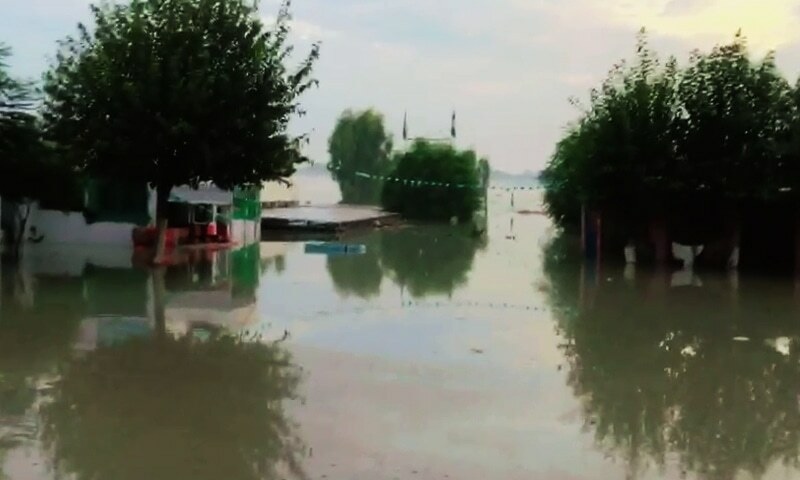DERA GHAZI KHAN: Thousands of people, most of them children, in the flood-stricken areas of Dera Ghazi Khan and Rajanpur are suffering from diarrhoea and other diseases.
Post-flood ailments in the trans-Indus districts are being reported. The situation has been exacerbated by a lack of coordination among the departments and mismanagement in providing relief to the shelterless. The delay in relief and rehabilitation has led to onset of health problems for the people, especially children and the elderly.
Muhammad Asadullah Shahzad, the spokesperson for the secretary health south Punjab, said on Saturday 18,854 (10,201 in Rajanpur and 8,653 in DG Khan) people including children were suffering from diarrhoea and under treatment at medical camps. The number of patients, he said, was feared to rise.
As many as 35,114 people were suffering from skin diseases while 20,064 people had complained of fever, he said. According to him, eye infections were spreading as 2,437 people were getting treatment in both Dera Ghazi Khan and Rajanpur districts.
“It is alarming that 42,958 flood-stricken people are suffering from respiratory diseases,” said the spokesperson.
In all, according to official data, 86,685 people have visited the medical camps in south Punjab.
Shahzad said there was enough stock of medicines at the camps meant for the ailing. He said the data compiled covered a period of a month and a half -- July 15 to Sept 2.
As many as 570 cases of diarrhoea were reported in Rajanpur on Thursday.
The affected people are also facing starvation and incidents of food snatching have taken place.
A handout said a 20-member medical team of the Institute of Public Health (IPH) reached Dera Ghazi Khan to provide aid to the flood victims. The doctors would treat patients and help prevent outbreak of diseases.
IPH Dean Prof Dr Zarfashan Tahir sent off the team comprising Assistant Professor Dr Mohsin Aftab, Dr Mursaleen Ali, Dr Mudassar Saleem, Dr Ali Raza (MPhil), Dr Obaidullah Qazi (molecular biologist) and lab technicians and assistants. The team, Dr Tahir said, had taken dry ration, flour, pulses, juices, biscuit packets, clothes and shoes to be distributed among the flood victims. These had been donated by employees of the institute, she added.
The public health experts would also collect blood samples for diagnosis and knowing the trend of various epidemic diseases, she said, adding that the team had also taken medicines for fever, diarrhoea, infections, skin allergy and other diseases.
Published in Dawn, September 4th, 2022














































